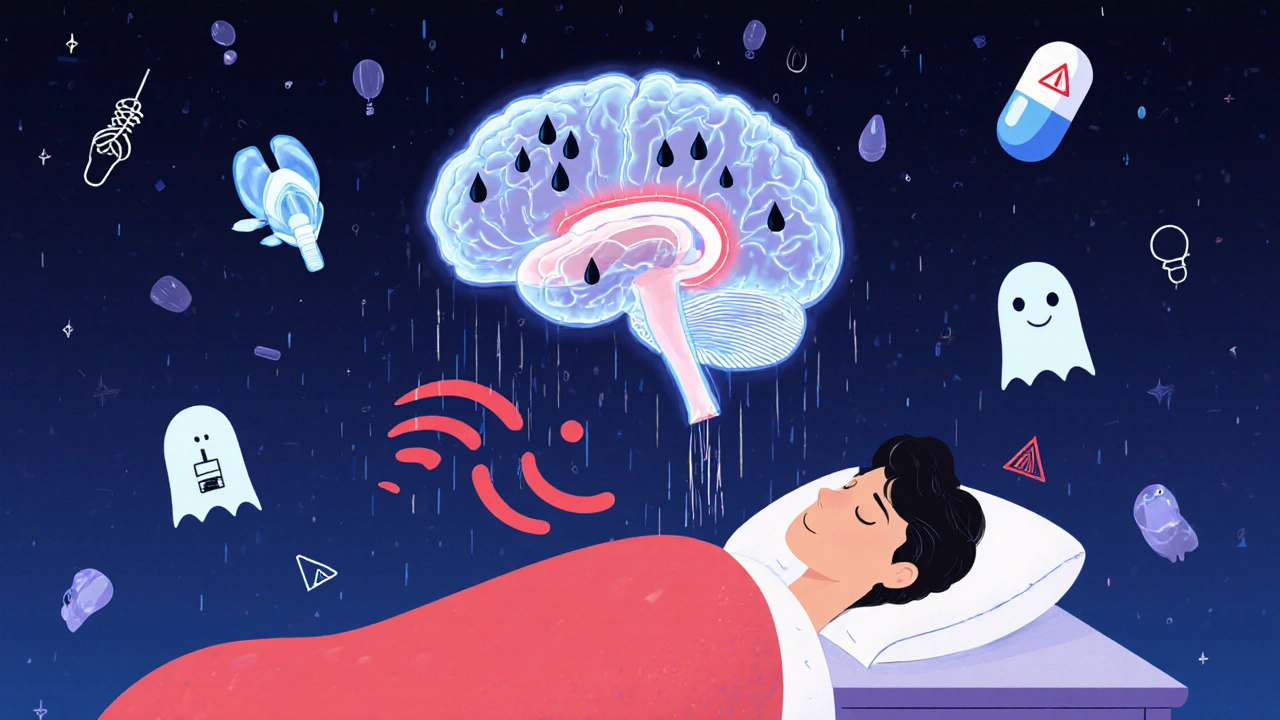Central Sleep Apnea: Causes, Risks, and What Medications Can Affect It
When your brain stops sending the right signals to breathe during sleep, you’re dealing with central sleep apnea, a neurological sleep disorder where breathing pauses because the brain fails to trigger the muscles that control respiration. Unlike obstructive sleep apnea, which is caused by blocked airways, central sleep apnea is a communication breakdown between your brain and your lungs—often silent, often overlooked, and sometimes made worse by common medications. It doesn’t always come with loud snoring. Instead, people wake up gasping, feel exhausted even after a full night’s sleep, or notice they’ve been told they stop breathing while asleep—without any snoring at all.
This condition doesn’t happen in a vacuum. It’s closely linked to respiratory depression, a dangerous slowing of breathing that can result from drugs like opioids, benzodiazepines, or even some antidepressants. If you’re taking pain meds like oxycodone or muscle relaxants like gabapentin, you might not realize they’re interfering with your brain’s natural breathing rhythm. Studies show that up to 25% of people on long-term opioids develop central sleep apnea—sometimes without ever being tested. And when you combine these drugs with alcohol or sedatives, the risk spikes even higher. It’s not just about feeling drowsy; it’s about your body forgetting how to breathe.
People with heart failure, stroke, or neurological disorders are also at higher risk. But even healthy adults can develop it—especially if they’ve been on certain meds for months or years. The good news? It’s treatable. CPAP machines help some, but not everyone. Alternatives like adaptive servo-ventilation (ASV) or even switching medications can make a real difference. What you need to know isn’t just that it exists—it’s how to spot it early, what to ask your doctor, and which drugs might be making it worse.
Below, you’ll find real patient experiences and expert breakdowns on how common medications—from painkillers to antidepressants—can trigger or worsen breathing issues during sleep. You’ll also see what alternatives exist, how to talk to your provider about sleep testing, and what signs you should never ignore. This isn’t just about sleep. It’s about staying alive while taking the meds you need.
Sleep Apnea and Opioids: How Pain Medications Increase Nighttime Oxygen Drops
Opioids can severely disrupt breathing during sleep, causing dangerous drops in oxygen levels. Learn how pain medications increase the risk of nighttime hypoxia and what steps you can take to protect yourself.
More
